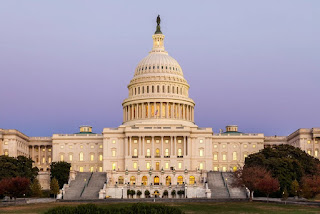Congressional Term Limits
Since 1964, occupant congresspersons normally have a 80 percent possibility of being reappointed; delegates normal more like 95% . There are various variables that record for the officeholder advantage. Occupants ordinarily have more name acknowledgment, more mission cash, and a legislative record to highlight. With those variables set up, the most probable explanation an individual from Congress isn't reappointed is either retirement or demise.
The pervasiveness of vocation lawmakers has driven some to address whether the shortfall of service time restraints the House and Senate is at chances with Congress' job as a genuinely delegate body. Also, we've restricted the terms of presidents, so why not do likewise for individuals from Congress?
The greatest obstruction to term-restricting individuals from Congress is simply the Constitution. The lone service time restraint has been forced has been on the administration through the 22nd Amendment. Accordingly, a point of reference has been set up that another alteration would be needed to force service time restrictions delegates or potentially representatives. The way toward passing an established change is strenuous no doubt, yet the most principal hindrance would be that Congress itself needs to endorse it. In a lawmaking body overwhelmed via profession officials, it is far-fetched they would cast a ballot to restrict themselves.
Those for service time boundaries that we ought to force them on individuals from Congress for exactly the same explanation we force them on the president: to make a beware of force. Legislators employ enormous force and impact. They are the solitary 535 residents (out of 320 million) who really will decide on our laws. They shape government strategy, make financial plans, affirm official arrangements, and announce war. However holding power for extensive periods makes individuals from Congress less like chosen delegates and more like a political nobility—one that is confined in a "Washington Bubble." Some Americans feel that by investing such a lot of energy in Congress, individuals become withdrawn from their constituents. Furthermore, when they can underestimate their re-appointment, individuals are less disposed to address their constituents' advantages. Some additionally contend that when an individual from Congress has been in office longer than the vast majority of their constituents have been alive, that part is withdrawn from the necessities and changing sensibilities of their region.
So the rationale appears to be quite solid there. Are there any contentions for keeping things as they are? All things considered, yes.
Others accept that the shortfall of service time restrictions the force of the administrative branch as a mind the presidential branch. Take Representative Young and Senator Leahy, for instance. Both have been in power since Watergate and have seen eight presidents go back and forth during their residency. Without service time boundaries, can administer past the extent of one organization. Moreover, the duties of a part can be immensely confounded. It can require a long time to manufacture connections and expert the standards that administer Congress.
Others alert against the formation of a stand-in Congress. A "stand-in" portrays a chosen official who has not been reappointed however serving out the rest of their term is. This period is once in a while seen as tricky, as the individuals who will stay in power past the stand-in period are less inclined to work with stand-ins on new approaches since they'll before long be managing substitutions who may need various things. The way things are, there are 30 stand-in agents and a small bunch of stand-in legislators for the following two months. With service time boundaries, could be many stand-in individuals for quite a long time at a time.



Comments
Post a Comment